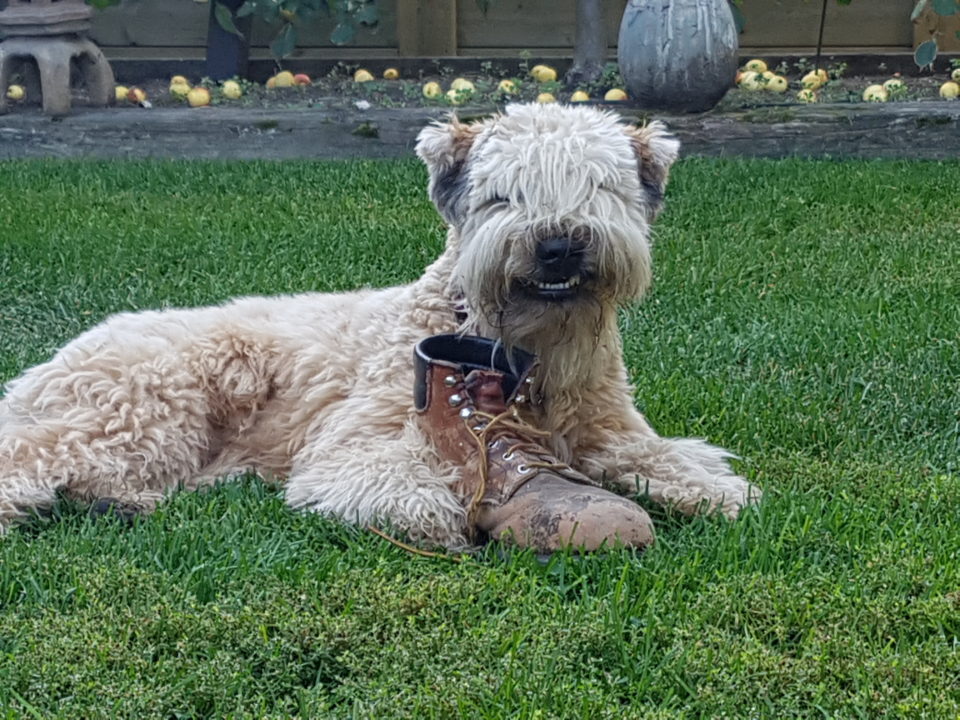
It’s February, which means it’s time for dental month. Vet clinics everywhere will be promoting dental health as it relates to the pets that they see; this is no different for us at Martensville Veterinary Hospital (if you don’t already follow us on Facebook or Instagram, here is the shameless plug suggesting you do so). For many people, this month is an annual reminder that their pet should have their teeth professionally cleaned. This reminder will set many pet owners in motion and they will begin calling different clinics to get over the phone quotes for the cost of these cleanings. Of course, we’d love for everyone to bring their pets to us. We love what we do, and we know that we do it well. We’re also realists, and we know that we can’t see every pet out there (even though we’d really like to!). So, to kick off dental month, we thought we’d compile a list of questions to ask when you are getting dental estimates for your pets.
Will your pet be under general anesthesia? Anesthesia is required to be able to perform dental cleanings quickly, effectively, and safely.
Will your pet receive IV fluids while they are anesthetized? Are fluid pumps used? Commonly, pets under general anesthesia will have a reduced blood pressure. A decrease in blood pressure can have many negative effects, especially within the kidneys. IV fluids help to mitigate this effect. A fluid pump helps to ensure accuracy in setting the fluid rate (the rate at which your pet will receive fluids) as well, it makes quick changes in the rate possible.
Will supplemental heating be provided during the procedure and what is used? Another change seen with anesthetized patients is that they are unable to regulate their body temperature. We need to provide supplemental heating and that can be done a number of ways. The best: warm air blower (Baer Hugger) or HotDog. Rice bags and warming disks used to be the most common way to heat a patient but these methods can easily cause burns so many clinics, including ours, have moved away from their use.
What vitals will be monitored while your pet is under general anesthesia? You’ll find the answer to this question will vary a lot between clinics. Some only monitor heart rate and SPO2 (blood oxygenation). We want better than that for your pet. We’ve already touched on how anesthesia can cause changes to blood pressure and temperature, so they should be continuously monitored. At Martensville Veterinary Hospital, we also monitor respiratory rate, ECG (electrocardiograph, which allows for detection of abnormalities within the heart’s electrical function), ETCO2 (end tidal CO2, this allows us to assess your pet’s breathing, beyond the rate), capnography (another way to assess their breathing), InCO2 (breathing again, this one lets us know that our anesthetic machine is working correctly). All of these vitals are continuously monitored, and should one of our monitoring devices fail, we have spares to swap them out with.
Do they perform full mouth radiographs? This might be the most important question of all! A large percentage of dental disease is actually hidden to the naked eye. Sure you can see most fractures, the plaque, the calculus, you can smell their breath but you can’t see the bone loss, the periodontal pockets, the tooth root abscesses, the broken roots. These hidden pathological changes are revealed through a thorough oral exam while under general anesthesia coupled with dental radiographs. We call this a comprehensive oral health assessment.
**This is also why dental estimates can be very difficult to accurately create. At Martensville Veterinary Hospital, one of our RVT’s will see your pet for a complimentary dental exam. They assess what can be seen, and base their estimates on that. A lot of the time, their estimates are bang on. Sometimes the dental radiographs surprise us; sometimes it’s a happy surprise, but sometimes it isn’t. It’s important to know that the most accurate quote is given once the oral health assessment has been completed
If your pet needs to have teeth extracted, will they block the nerves in that area? A common misconception is that pets don’t feel pain while under general anesthesia. They absolutely do, so, as a part of the anesthetic protocol, a pain medication is given. This medication isn’t enough to block the pain from dental extractions so we perform dental nerve blocks, the same as our dentist would do for us. Proper pain control, which includes the use of nerve blocks, while under anesthesia allows you to use less of the anesthetic agent, which in turn reduces the common side effects, like the reduction in blood pressure.
Are post dental medications included in the estimate? A dental cleaning alone doesn’t often require medications afterwards, but if your pet has had teeth extracted they should have a short course of a pain medication. While the cost associated with these medications isn’t exorbitant, it’s still good to know about them beforehand. You’ll find two pain medications on our dental estimates; one is an injectable that we administer right after the procedure, while the other is to be taken home and given over the next few days. Antibiotics are another possibility, especially if the radiographs show a tooth root abscess or if there is a fractured tooth.
Price shopping only gives you one piece of information. Dental estimates give you a bit more. We’re hoping that after reading this, you will know how to get the rest of the information you need to ensure your pet is getting the absolute best care.
If you would like to schedule a complimentary dental appointment with one of our RVT’s, please call 306-933-2677.




